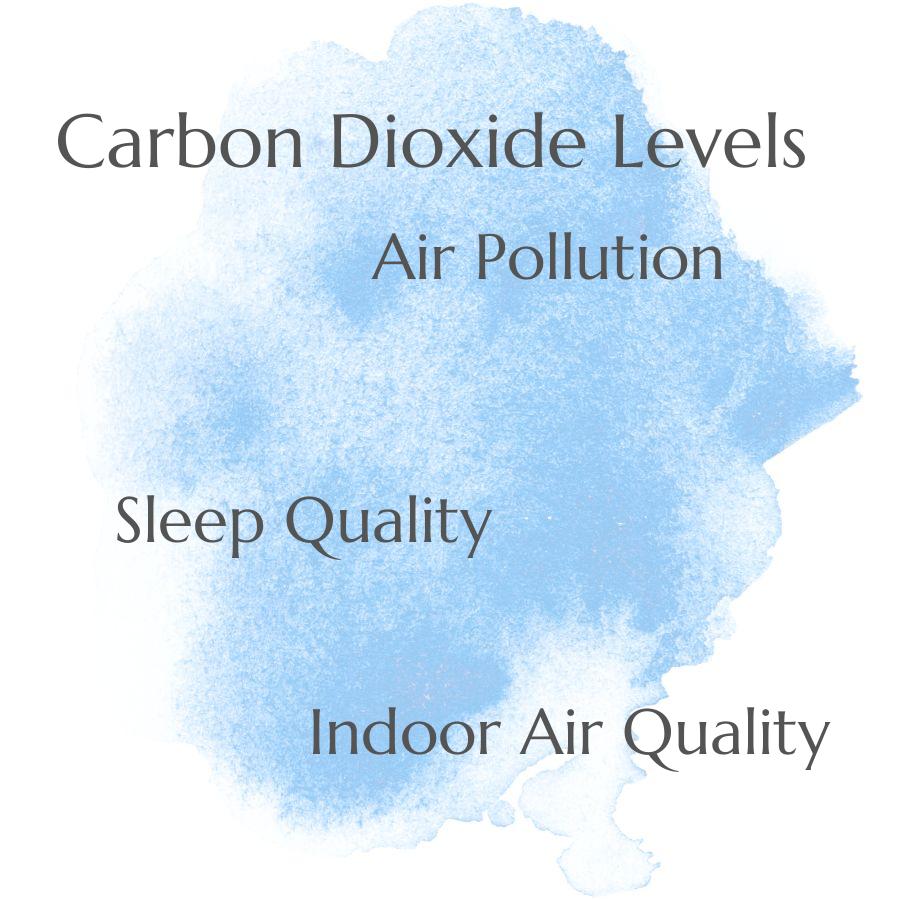Indoor air quality can have a significant impact on sleep quality, as poor air quality can lead to difficulty in falling asleep, frequent awakenings during the night, and other sleep disturbances.
Good sleep is essential for our health and wellbeing, but did you know that the air quality inside your home can have a huge effect on the quality of your sleep? Poor indoor air quality can lead to a variety of sleep issues, from difficulty falling asleep to waking up feeling unrested. In this blog post, we’ll explore how indoor air quality affects sleep quality and what you can do to improve it.
Air Pollution

Air pollution is the presence of harmful substances in the air that can cause health problems and damage the environment. These pollutants come from sources such as vehicle exhaust, industrial emissions, burning of fossil fuels, and other human activities.
Inhaling these pollutants can lead to respiratory illnesses and other health issues that can interfere with sleep. High levels of air pollution indoors can reduce oxygen levels in the room, making it difficult for people to breathe properly while sleeping.
This lack of oxygen leads to fatigue during the day and difficulty falling asleep at night due to shallow breathing or interrupted sleep cycles. Poor indoor air quality also increases exposure to allergens like dust mites or pet dander which may trigger allergies or asthma symptoms that further disrupts sleep patterns.
Temperature
When the temperature of a room is too hot or too cold, it can disrupt sleep patterns and lead to poor sleep quality. Too much heat can cause discomfort, making it difficult to fall asleep or stay asleep.
On the other hand, if the room is too cold, it can make sleeping uncomfortable and cause shivering which will also interfere with restful sleep. To ensure good indoor air quality and optimal sleep quality, it is important to maintain a comfortable temperature in the bedroom that falls between 65-72 degrees Fahrenheit (18-22 degrees Celsius).
Humidity
Humidity refers to the amount of water vapor present in the air, and it affects how comfortable we feel when sleeping. High humidity levels can make us feel hot and sticky, making it difficult to fall asleep or stay asleep.
On the other hand, low humidity levels can cause dryness in our nasal passages and throats which can lead to congestion, coughing, and difficulty breathing while sleeping. Low humidity levels may also increase static electricity which could be disruptive during sleep.
Therefore, maintaining a moderate level of humidity (between 30-50%) is ideal for achieving good sleep quality as it will help keep us feeling comfortable throughout the night.
Ventilation
Ventilation involves the exchange of air between the inside and outside of a building, which helps to reduce pollutants such as dust, pollen, smoke, mold spores, and other airborne particles. It also helps to regulate temperature and humidity levels in the home.
Proper ventilation can help improve sleep by providing fresh air that is free from allergens or irritants that may cause breathing difficulties or discomfort while sleeping. Proper ventilation can help reduce noise levels from outside sources such as traffic or neighbors.
By ensuring adequate ventilation throughout your home you can create a healthier environment for better sleep quality.
Allergens
They can be found both indoors and outdoors, but indoor allergens tend to be more concentrated and therefore more likely to affect sleep quality. Common indoor allergens include dust mites, pet dander, mold spores, and pollen from houseplants.
These particles can become airborne when disturbed by activities such as vacuuming or walking on carpets. When inhaled during sleep, these particles can trigger an allergic reaction which may lead to difficulty sleeping or waking up feeling unrested.
To reduce the presence of allergens in the home environment it is important to regularly vacuum carpets and furniture with a HEPA filter vacuum cleaner; wash bedding weekly in hot water; keep humidity levels low; use air purifiers; and remove any potential sources of mold growth such as wet towels or damp walls.
Dust Particles
These particles come from a variety of sources, such as pet dander, pollen, mold spores, and dust mites. When these particles become airborne, they can enter our lungs and cause respiratory problems.
Dust particles can also affect sleep quality by making it difficult to breathe comfortably while sleeping. Inhaling too many dust particles can lead to coughing fits or difficulty breathing during the night which may disrupt sleep patterns and make it harder to get a good night’s rest.
Furthermore, some people may experience allergies or asthma symptoms due to exposure to high levels of dust in their home environment which could further impact their ability to get adequate restful sleep.
Carbon Dioxide Levels
It is produced by humans and animals when they breathe, and it can also be released from burning fuels such as wood, coal, or natural gas. High levels of CO2 in indoor air can have an adverse effect on sleep quality.
Studies have shown that elevated levels of CO2 can reduce oxygen levels in the blood, leading to fatigue and difficulty concentrating during the day. High concentrations of CO2 may cause headaches and dizziness which can further disrupt sleep patterns.
To ensure good indoor air quality for better sleep quality, it is important to keep carbon dioxide levels low by ventilating rooms regularly with fresh outdoor air or using an air purifier with a carbon filter to remove excess CO2 from the environment.